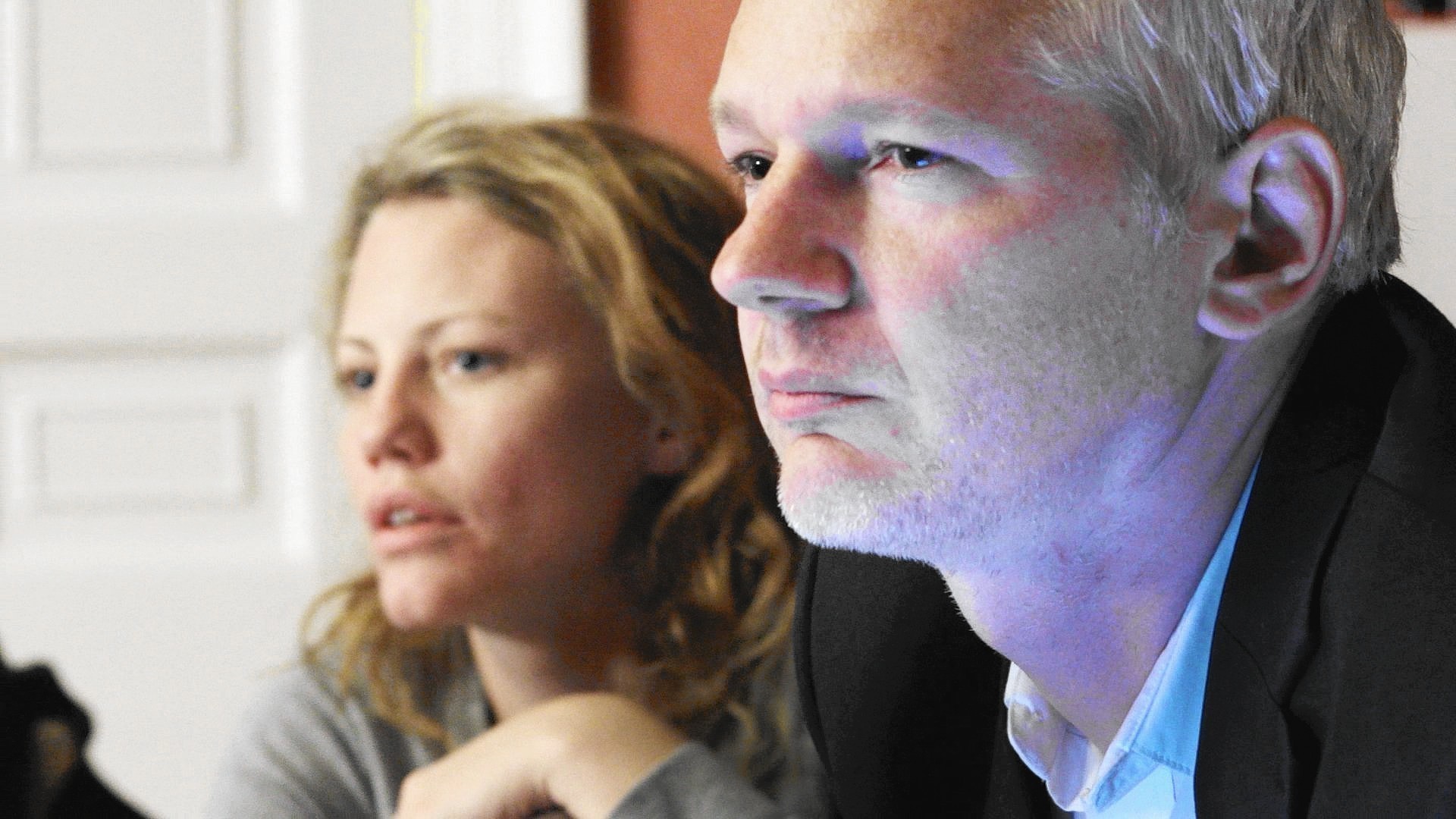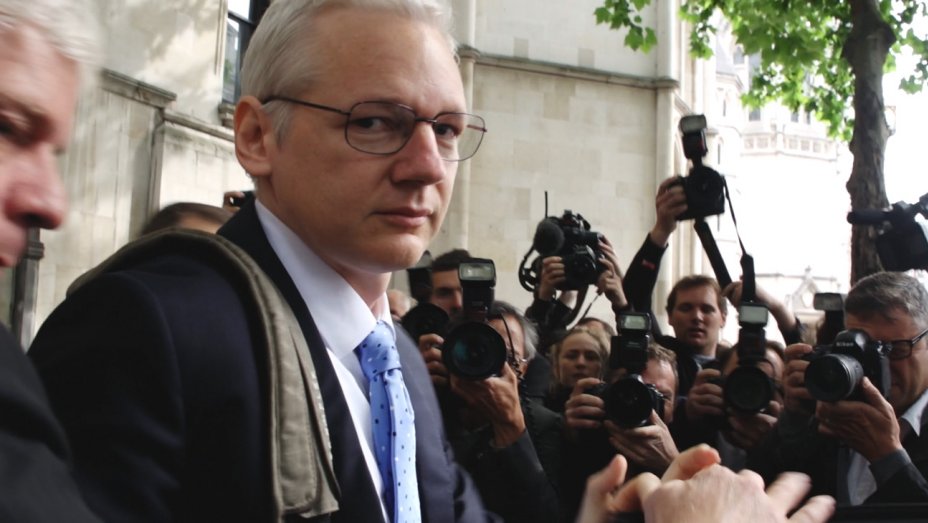Julian Assange’s white hair marks his public persona. To some he’s an unmistakably branded outsider, or a lone white wolf hunting global injustice. Hollywood would cast him as the coolly enigmatic superhero who’s revealed as the supervillain in the last reel. Laura Poitras’ Risk shows him as a slippery character in his own spy film, dying those famous locks brown as he alters his appearance under his adoring mother's gaze, before making a Bourne-like motorbike getaway under the authorities’ noses, to become a cramped citizen of Ecuador.
Poitras’ extreme access films several such pivotal moments. Between Risk’s 2016 premiere at Cannes and this final cut, she reluctantly admitted what her footage had been telling her, and added murky grey to her intended noble portrait. It was Assange’s fury at the Cannes version which peeled the scales from her eyes, but this was already occurring in front of her camera. Take, for instance, civil liberties lawyer Helena Kennedy coaching Assange out of calling his sexual assault accusers a “radical feminist conspiracy”. When she grasps his intransigent contempt, Poitras pans to her look of stunned horror. Casanova has turned into Bluebeard, and her case has slammed into a ditch.
 Poitras’ most piquant scenes show Assange at bay in a supporter’s English country pile. It has the atmosphere of an unusually luxurious Le Carré safe house. When Assange meets a WikiLeaks lawyer in a nearby copse, he lounges on the ground in his favoured pose of ambling slacker. Yet every shift in the shadows, every sudden bird-song, becomes an MI6 spook, mingling with the trees. It’s theatrical, self-fulfilling paranoia. This culminates in his physical world becoming a tiny room in a Latin American embassy next to Harrods. There, his self-righteous certainty grows unimpeded.
Poitras’ most piquant scenes show Assange at bay in a supporter’s English country pile. It has the atmosphere of an unusually luxurious Le Carré safe house. When Assange meets a WikiLeaks lawyer in a nearby copse, he lounges on the ground in his favoured pose of ambling slacker. Yet every shift in the shadows, every sudden bird-song, becomes an MI6 spook, mingling with the trees. It’s theatrical, self-fulfilling paranoia. This culminates in his physical world becoming a tiny room in a Latin American embassy next to Harrods. There, his self-righteous certainty grows unimpeded.
Poitras was initially distracted from Assange by Edward Snowden, becoming personally enmeshed in his story, and spinning out an award-winning film about him, CitizenFour. Risk remains absent-minded, almost afraid to say what it thinks. There is ample evidence of Assange’s bravery, as he wills his hands not to shake en route to court, and exits in a vast, slow-rolling media ruck. There is also much arguable misogyny, and indifference to anything beyond his assigned struggle against evil. “The risks of inaction are extremely high,” Assange tells a disciple, giving Poitras her title. “How many people are you willing to sacrifice,” he asks later, in his country house interzone, “to get that political gain?” More will die if you don’t, he tempts. This is the language of Robespierre.
 Poitras is an admirable, activist film-maker, exploring the bloody world we fell into after 9/11. She sees Assange in the same fight. Some of the evils he has exposed certainly dwarf his conduct. But when personal flaws become overwhelming, and a cause consumes human feeling, this also matters. Perhaps warped from his idealism by fame, certainly damaged by an itinerant childhood when his family were hunted by his father’s cult, Assange is a gift to cinema. Poitras provides gripping evidence of who he has become, but flinches from it. She abandons Risk as a tangle of suggestive loose ends.
Poitras is an admirable, activist film-maker, exploring the bloody world we fell into after 9/11. She sees Assange in the same fight. Some of the evils he has exposed certainly dwarf his conduct. But when personal flaws become overwhelming, and a cause consumes human feeling, this also matters. Perhaps warped from his idealism by fame, certainly damaged by an itinerant childhood when his family were hunted by his father’s cult, Assange is a gift to cinema. Poitras provides gripping evidence of who he has become, but flinches from it. She abandons Risk as a tangle of suggestive loose ends.















Add comment